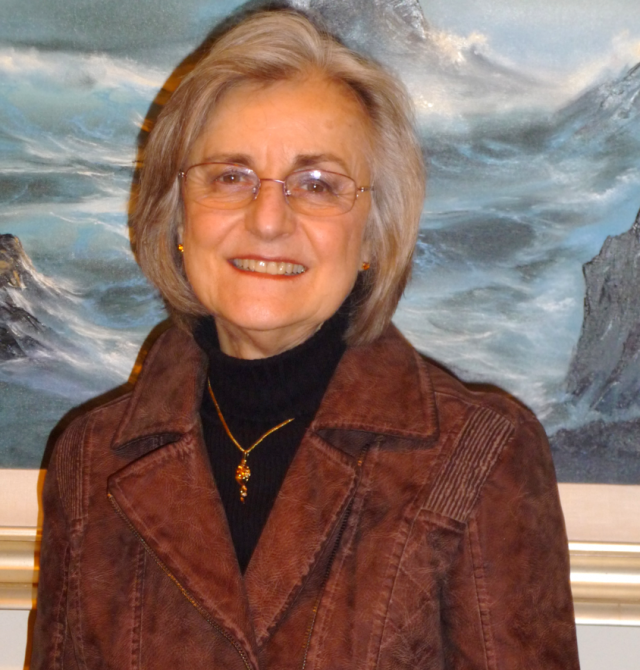Meet EPA Research Ecologist Mary E. Kentula, Ph.D.
EPA’s Dr. Mary Kentula assesses the health of wetlands at large scales. Her research contributes to the National Wetland Condition Assessment, a collaborative survey of our Nation's wetlands that examines the chemical, physical, and biological integrity of wetlands. In 2019 Dr. Kentula received the Lifetime Achievement Award from the Society of Wetlands Scientists for her major contributions to wetland research and restoration, as well as her mentorship that has inspired an entire generation of scientists.
What do you like most about your research?

Meet EPA Research Ecologist Dr. Mary Kentula!

I enjoy tackling major issues, like how to restore ecosystems, or monitor and assess ecosystems at a continental scale. This kind of research requires a team approach. I relish the challenge of assembling the team, developing a strategic approach to accomplishing the objectives, and working with team members to achieve something that would have been difficult, if not impossible, to do separately.
How does your science matter?
Doing science for a government agency is unique in that the research is designed to inform policy and manage ecological resources. It is very satisfying to see the work of my team inform policy in a positive way. Over my career, our research has been the basis of changes to policy at the national level twice for EPA and once for the Army Corps of Engineers and has also informed policy and management at the state and local levels.
When did you first know you wanted to be a scientist?
I was always interested in science but growing up in a small coal mining town in southwestern Pennsylvania provided few examples of what it was to be a scientist. The only scientists I knew were male science teachers who taught in my high school until a guidance counselor encouraged me to apply for a summer science experience sponsored by the National Science Foundation, held at Thayer Academy in Braintree, Massachusetts. There, I had the opportunity to explore a variety of biological scientific disciplines. My experience culminated in a research project that I designed and implemented. I presented the results via oral presentation to the other recipients, our parents, and the academy faculty. It was my first taste of being a real scientist, and I knew then that I wanted to do research as a career.
Tell us about your educational and science background.
I earned a BS in Biological Science from Saint Francis College in Loretto, PA, and an MS in Biological Science and a Ph.D. in Botany and Plant Pathology, from Oregon State University. After earning my degrees, I completed a postdoc with Dr. Joy Zedler at San Diego State University. This was a great fit because I particularly admired Joy’s research in wetland ecology and restoration. When I first read Joy’s work, I realized that depending on the definition of wetland used, some of the systems included in my MS research and the seagrass beds I studied during my PhD were wetlands! During my postdoc, Joy was asked by EPA’s Environmental Research Laboratory in Corvallis, Oregon, to lead the development of a Wetlands Research Plan for the Agency, and she asked me to assist. As they say, the rest is history. I was first hired as contractor and eventually I successfully competed for a federal Research Scientist position with EPA, where I became the lead for EPA’s Wetlands Research Program. Since then, I have transitioned to research about how to assess wetlands at large scales, which included the Environmental Monitoring and Assessment Program (EMAP), and now the National Wetland Condition Assessment, which is part of the National Aquatic Resource Surveys.
If you weren’t a scientist, what would you be doing?
I would probably be teaching biology at a high school or junior college. Before I came to work at the EPA, I taught junior high science for a time. I loved teaching, and I still stay involved with students as an adjunct professor at Oregon State University.
What advice would you give a student interested in a career in science?
Take advantage of opportunities that offer a chance to work with a mentor who can provide hands-on experience in an area of science that interests you. Try things that are totally new and challenging – exploring different careers and subject areas is an excellent way to discover what you’re passionate about.
If you can have any superpower, what would you choose?
I would like to control time, so I could fit everything into a day that I needed and wanted to get done.
What do you think the coolest scientific discovery was and why?
During the NSF summer science program, I learned about the discovery of the structure of DNA and how it works. At the time, everything about DNA and RNA was cutting edge. To this day, I can’t get over the fact that all the information packed in chromosomes is based on an alphabet of four letters.
If you could have dinner with any scientist, past or present, who would you choose? And what would you ask them?
I would like to meet John Wesley Powell and hear his account of rafting the Colorado River though the Grand Canyon, and his impressions of the ecosystems and geology encountered along the way. I would also want to discuss with him the ideas and experiences that inspired his firm belief that government had an important role to play in science.
Faces of EPA: Mary Kentula
Editor's Note: The opinions expressed herein are those of the researcher alone. EPA does not endorse the opinions or positions expressed.
